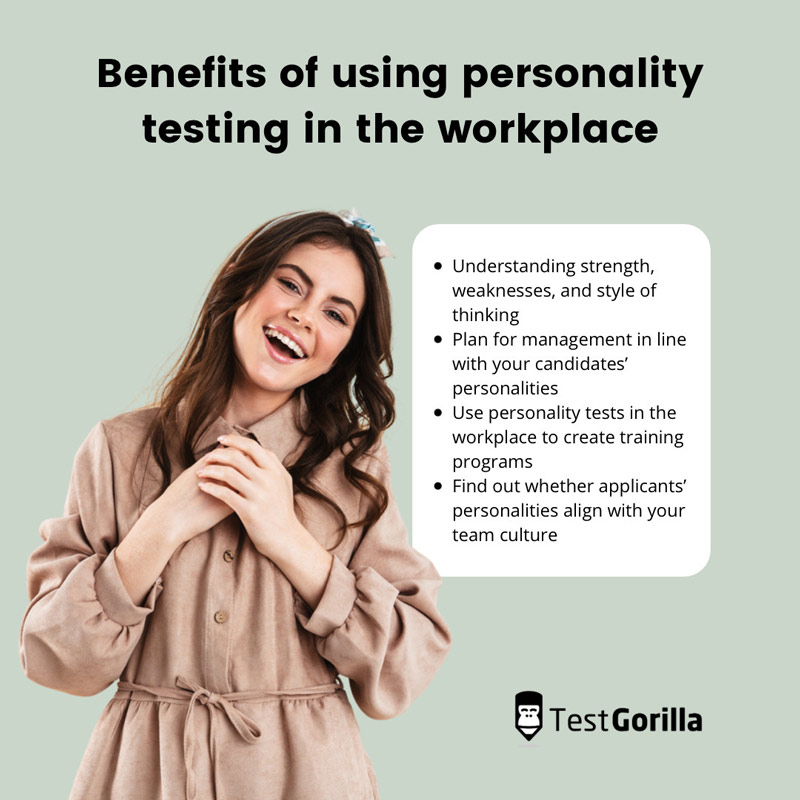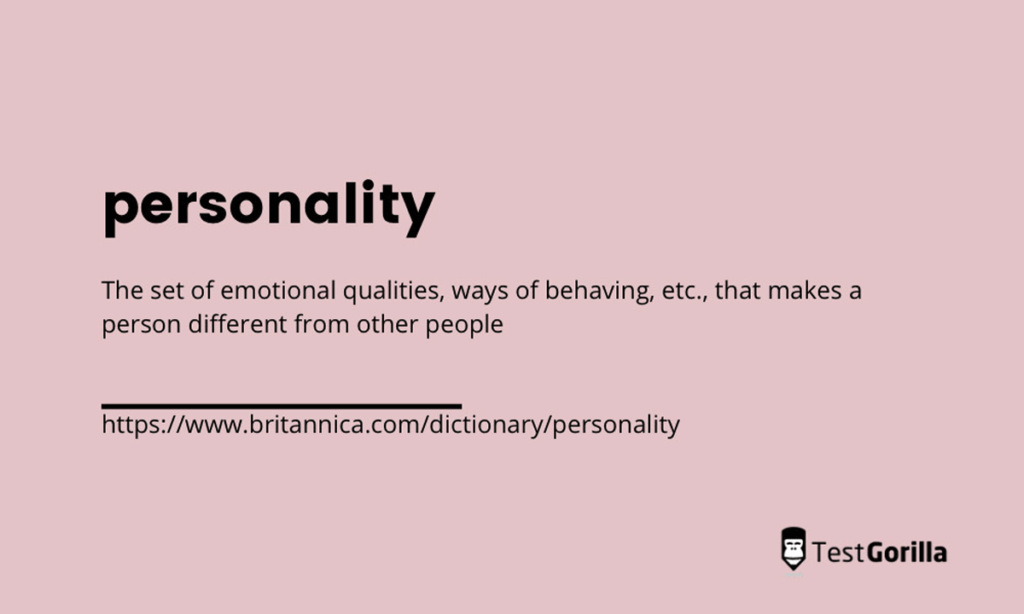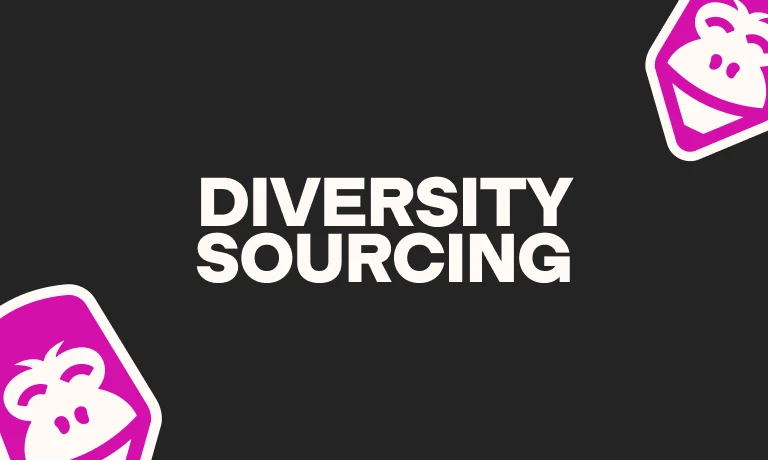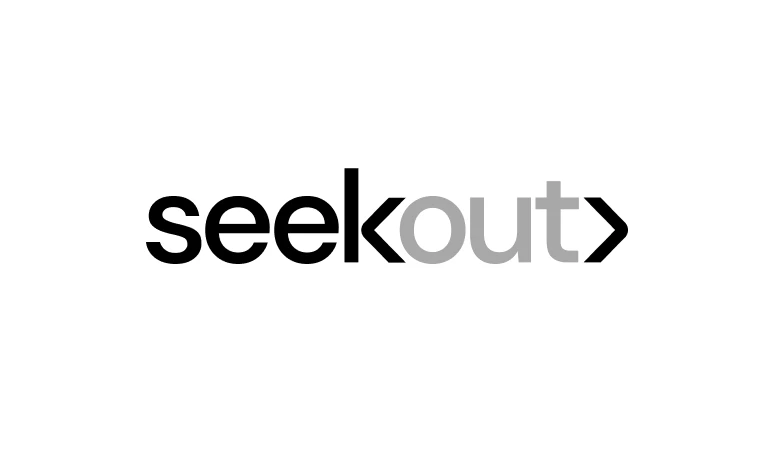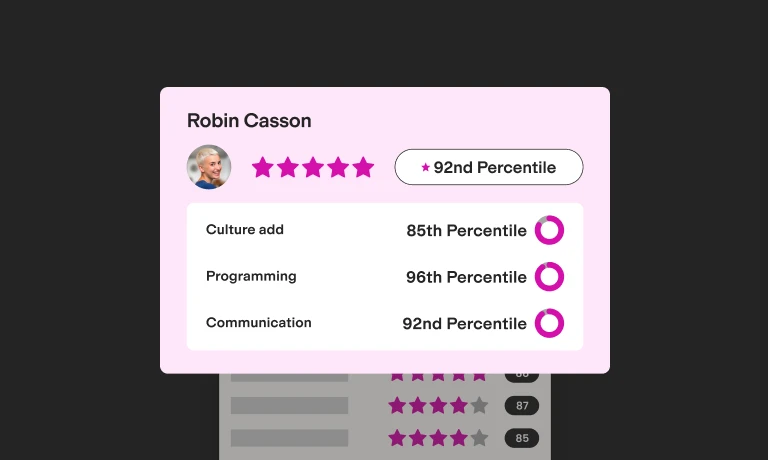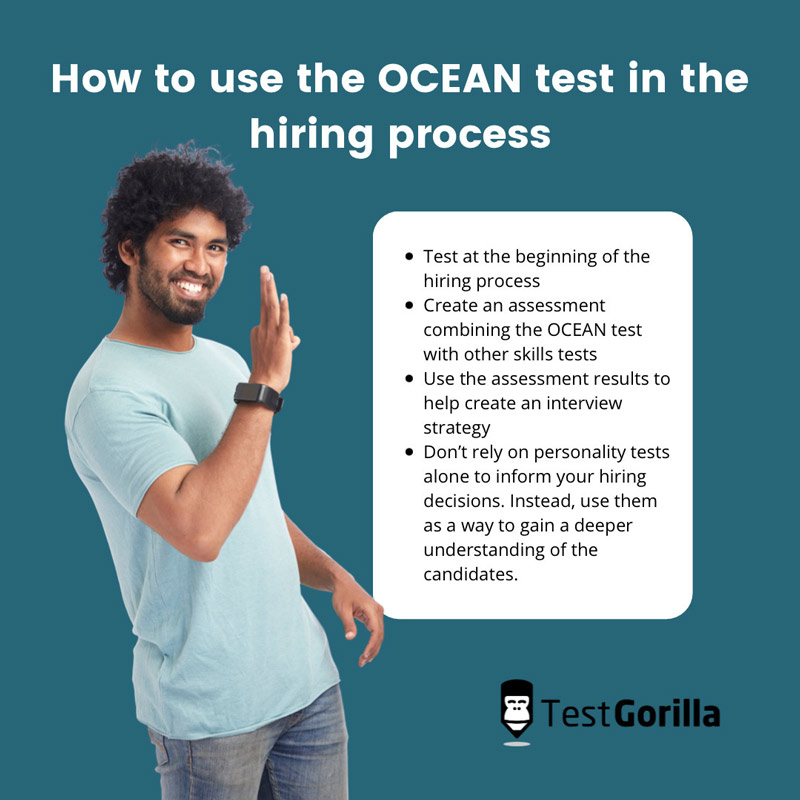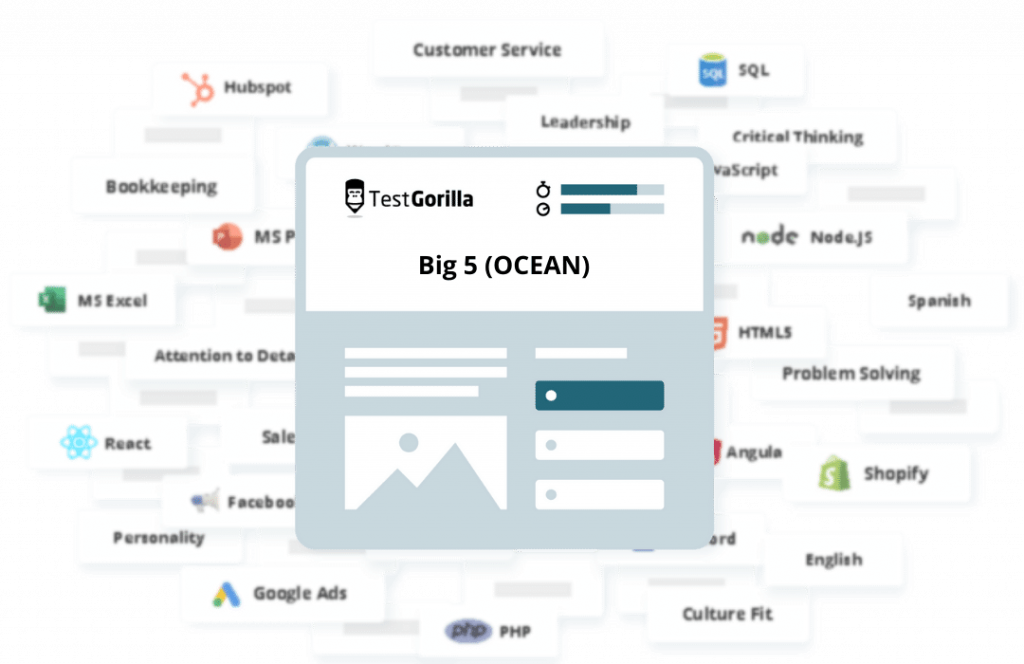The OCEAN test: Why the Big Five personality traits are important
Personalities – we all have them, just like opinions. People have probably been fascinated by personality traits since the first humans roamed the earth. Although there are many free “personality tests” floating around the internet, a lot of them are not scientifically backed and are only meant to be taken for fun.
The first, serious personality test was created in 1915, during the First World War.
Robert Woodworth’s “Psychoneurotic Inventory” was the forerunner of today’s popular personality tests.
Woodworth’s test was designed to assess soldiers’ susceptibility to shell shock, but today’s personality tests aren’t designed around such extreme situations.
We’re going to look at why the Big Five (also known as OCEAN) personality traits are important, and also how the OCEAN test can help employers gain a better understanding of candidates and current employees.
Why personality matters in the workplace
Nowadays, employers and recruiters are looking for staff who can offer more than technical skills. Being good at their job doesn’t always mean a worker makes a great employee or team member.
Organizations and managers have realized that they need employees with the right personality traits and values to help build a cohesive, productive, and happy work environment for everyone.
For example, if you hire an introverted person for a job that involves working with and talking to many people, they would probably end up being unhappy in the role, however good their job-related skills are.
Hiring someone with the wrong personality traits for a specific role can also have a bad effect on other employees. Passive-aggressive behavior, laziness, negativity, and lack of empathy are just some of the “anti-skills” that can demoralize a team and cause upset and resentment.
Personality tests are useful for candidates as well as current employees
Personality assessments like TestGorilla’s Big Five (OCEAN) test can be a useful screening tool at the employee application stage when used as part of a larger pre-employment skills assessment.
Although they shouldn’t replace the decision-making process, personality tests can also help recruiters create specific questions that enable a more in-depth interview with candidates. Pre-employment assessments that include the Big Five OCEAN test help recruiters identify candidates who have the job-related skills and the personality traits to fit the role.
Organizations can also benefit from using the Big Five OCEAN test to evaluate their current employees, as it can help managers understand communication styles and how each individual approaches their work and interacts with others.
Good leaders have the skills to adapt their communication style to fit the individual, which leads to a more harmonious and inspired workplace.
Next, we’re going to take a look at the Big Five personality traits, why they are important, and how to include an OCEAN test in a pre-employment skills assessment.
The best insights on HR and recruitment, delivered to your inbox.
Biweekly updates. No spam. Unsubscribe any time.
What are the Big Five personality traits?
Many modern psychologists believe that there are five basic dimensions of personality. often referred to as the “Big 5” personality traits. The Big Five personality traits can be remembered as OCEAN:
Openness
Extroversion
Neuroticism
It’s important to remember that each of the Big Five personality factors represents a range between two polar extremes. For instance, within the Extroversion category, there is extreme extroversion at one end of the scale, and extreme introversion at the other.
When you’re looking at the Big 5 Personality test score interpretation, most people lie somewhere between those two extremes, and it’s the same with all the other categories in the OCEAN test.
Openness
People who score highly on the OCEAN test with these characteristics are generally creative, curious, adventurous, and enjoy new experiences. Those who score much lower in openness tend to dislike change, avoid trying new things and can lack imagination. They usually prefer routine and tradition and are generally more logical thinkers. While highly open people are good at expressing their feelings, those who are low on the scale can struggle to do this.
Individuals with high openness traits generally feel more positive than those with low openness and enjoy having good relationships with those around them. They tend to excel in creative careers, such as writing, art, and design.
Because they love experiencing new things and people, careers that feature adaptability and spontaneity are also a good fit for them.
Those who have a low openness trait do fit very well into certain job roles. They include jobs in finance, accounting, or auditing, as well as academic or analytical roles.
Conscientiousness
This personality trait measures how organized and thoughtful a person is. Those who score high on this scale in the OCEAN test are generally disciplined and goal-oriented. They plan everything down to the last detail and tend to dislike risk-taking.
Those who have a low conscientiousness score can find it hard to stay organized and stick to schedules and deadlines. They are inclined to have less self-control, live in the moment, and take more risks than highly conscientious people.
Employers love high conscientiousness in candidates, as they get the job done right the first time. However, being highly conscientious can have a downside, as those with such traits can get upset if things don’t go the way they planned.
Conscientious people do well in jobs that require meticulous planning, need self-discipline, and have tight deadlines, such as the police force, military, security, accountancy, the legal profession, or architectural drafting.
And yes, even people with low conscientiousness scores can find a job that suits them, as long as it’s not bound by tight schedules and planning. They often make great salespeople, landscapers, and drivers, as they love spontaneity and can be very adaptable.
Extroversion
No personality traits seem to polarize opinions more than those of extroverts and introverts. They are like the proverbial cat and dog, with each side claiming to be “better” than the other. That’s not the case; they just exist on the opposite ends of the same spectrum and both types of personalities can bring value to the workplace in different ways.
Extroverts who score high on this scale in the OCEAN test love being social. They enjoy talking to and connecting with others, and they love asking questions and being the center of attention. They feel more energized when they are with people because being social gives them a boost.
Introverts score much lower on the extroversion scale, and they are not as people-oriented as extroverts. They tend to dislike casual chatting, preferring to have conversations on a deeper level instead.
Some introverts do enjoy socializing, but also love spending time alone to recharge after social interactions.
Extroverts excel at careers where they can interact with people regularly, such as sales, TV, broadcasting, politics, event planning, public relations, advertising, or education.
Introverts also bring qualities to certain jobs where they can be left to concentrate without too much disruption, and they often make great remote workers because they aren’t disturbed by the office chatter. Good job choices for introverted people include writing, curating collections, engineering, archiving, art, accounts, graphic design, lab technician, and academic research.
Agreeableness
This personality trait doesn’t mean someone who agrees with others all the time, but how well they connect with people.
Those who score highly for agreeableness have a lot of empathy and concern for others. They are kind, trusting, and easy to get along with. They co-operate well with others, making them valuable team members, but they do sometimes take on more work than they can handle if they think someone needs help.
Those who score on the low end of the scale in this test tend to be more self-interested, competitive, logical, blunt in communication, and can also be manipulative at times.
Highly agreeable people do well in caring as well as customer-facing professions. They often make good nurses, carers, teachers, charity workers, counselors, and therapists. They are often found in customer service positions as well.
Lower agreeableness may mean that a person would be better working in a profession where empathy, gentle communication, and patience with others don’t play a major part. These include roles such as scientist, engineer, researcher, or other jobs where logic and directness in communication are valued.
Neuroticism
The word “neurotic” has such a stigma about it, that it’s often used as an insult – especially towards women. It’s a misused and misunderstood term, but in the context of psychology and the Big Five OCEAN test neuroticism is a measure of how easily upset or worried a person becomes when faced with problems.
Those who have a high neuroticism score in the test are often anxious, prone to emotional outbursts, lack self-confidence, and struggle to cope with problems. Those who score on the lower end of the spectrum are generally more relaxed, easy-going and tend not to worry too much about anything.
Because highly neurotic people have a low tolerance for anxiety and stress, they need jobs where there isn’t too much pressure, and less opportunity to get stressed.
Most jobs have at least some stressors involved, but those with a high level of neuroticism can have a successful career working with animals or a job that involves the outdoors, like gardening or horticulture. A job in the creative arts, archivist, or researcher is also a good choice.
Those who score low for neuroticism in the OCEAN test thrive in high-pressure jobs where they need to stay calm and in control. Good job choices include law enforcement, military, firefighter, paramedic, prison guards, doctors, attorneys, and air traffic controllers.
How the Big Five OCEAN test can help you to screen candidates
Although the OCEAN test alone shouldn’t be used to make hiring decisions, it can help you filter your candidates so you can better understand how they would align with the job role and the other people on your team.
Our tests are designed to be used as part of a larger pre-employment skills assessment, which should be taken before candidates have reached the interview stage. To find out more about the reasons behind this, you may find our blog post on why assessments should be done at the start of the hiring process helpful.
How do assessments work?
TestGorilla enables you to create a skills assessment by adding up to five individual tests to make one full assessment. Candidates take all the tests in one go, and you receive the results that show you the top performers on each test.
To build a strong assessment, you should add several different types of tests to suit the job role and to check for other soft skills or cognitive abilities. The OCEAN test would be one of these, so you could add another four to make a full assessment.
Our pre-employment assessments at TestGorilla combine three key factors to give an extensive insight into your candidates and their skills
Premade tests: choose up to five tests to build an assessment to give you a well-rounded review of the candidates. These tests can be on job-related skills, cognitive abilities, language skills, situational judgment, culture and personality, or programming skills. To get a bigger idea of the huge range of tests we provide, take a look at our test library.
Custom questions: These are optional and enable you to add up to 10 personalized questions to your assessment (multiple-choice, open-ended, or media-led). Tailoring your tests this way gives you the opportunity to ask questions specific to the job you’re hiring for.
Candidate performance score: evaluate which candidates performed better than others based on their answers to the questions provided.
By doing it this way, you can skip the CV screening stage and go straight to the interviews knowing the top-scoring candidates have already proved their skills through the tests. Assessments are also more predictive of success than resume screening software.
Skills-based testing is the future of recruitment
Having extra insight into how your candidates approach life and work by using the Big Five OCEAN test can be beneficial when it comes to hiring. The true cost of bad hires is shocking, and you need to use every method you can to reduce the risk of taking one on. That’s where the value of personality testing comes in.
Take this scenario, for instance. You think you’ve found the perfect applicant for your role. They have excellent job-related skills and did well in interviews, so you make them an offer and they accept.
All is well until they start work. Your team discovers first-hand that their hidden personality traits make life harder for everyone, and that they are, in fact, careless, unempathetic, risk-takers who can’t stand critical feedback. A pre-employment assessment including the Big Five OCEAN test could have helped you spot potential red flags and avoid problems.
Although the OCEAN test is a good indicator of personality traits, tests like these should never form the basis of hiring decisions alone. The results should be used as a framework to create your interview questions around, so you can dig deeper into what makes candidates tick, and how well they would fit into your organization.
Hopefully, we’ve given you some helpful information about the OCEAN test and how it can be used as an effective recruitment tool when taken as part of a skills assessment.
What are the next steps? Sign up for a free account at TestGorilla and start building your assessment, or check out our pricing page to find the plan that works best for you. Want to know more? Book a free live 30-minute demo with our sales team, who will be happy to answer any questions you have.
You've scrolled this far
Why not try TestGorilla for free, and see what happens when you put skills first.


